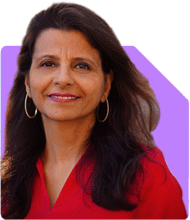Ramalingam Kalirajan |2770 Answers |Ask -Follow
Mutual Funds, Financial Planning Expert - Answered on May 08, 2024
He has an MBA in finance from the University of Madras and is a certified financial planner.
He is the director and chief financial planner at Holistic Investment, a Chennai-based firm that offers financial planning and wealth management advice.... more

I am 38 year old. Me & Wife both earn approx 12 lac per year. I have corpus of 3 CR as FD, MF, Shares. No liability. I have one daughter age 6. Can we both retire by 2028 ?
1. Current Expenses and Lifestyle: Evaluate your current expenses and lifestyle to determine if they are sustainable after retirement. Consider factors such as healthcare expenses, children's education, and any other financial commitments.
2. Retirement Goals: Define your retirement goals, including the desired lifestyle, travel plans, and any other aspirations you may have. Ensure that your retirement corpus can support these goals for the desired duration.
3. Inflation and Longevity Risk: Account for inflation and longevity risk, as retirement could potentially last for several decades. Ensure that your corpus is adequately inflation-adjusted and can last throughout your retirement years.
4. Health Insurance and Contingency Planning: Ensure that you have adequate health insurance coverage for you and your family to mitigate any unforeseen medical expenses. Additionally, have a contingency fund in place to handle any emergencies or unexpected expenses.
5. Professional Advice: Consider consulting with a certified financial planner who can assess your financial situation comprehensively and provide personalized advice based on your goals, risk tolerance, and investment horizon.
Given your substantial corpus and relatively high income, early retirement is feasible with careful planning and prudent financial management. However, it's crucial to conduct a thorough analysis of your financial situation and retirement goals before making any decisions.
Best Regards,
K. Ramalingam, MBA, CFP,
Chief Financial Planner,
www.holisticinvestment.in
You may like to see similar questions and answers below
Ramalingam Kalirajan |2770 Answers |Ask -Follow
Mutual Funds, Financial Planning Expert - Answered on Oct 26, 2023
Ramalingam Kalirajan |2770 Answers |Ask -Follow
Mutual Funds, Financial Planning Expert - Answered on Apr 16, 2024
Ramalingam Kalirajan |2770 Answers |Ask -Follow
Mutual Funds, Financial Planning Expert - Answered on May 13, 2024
Ramalingam Kalirajan |2770 Answers |Ask -Follow
Mutual Funds, Financial Planning Expert - Answered on May 20, 2024
Patrick Dsouza |275 Answers |Ask -Follow
CAT, XAT, CMAT, CET Expert - Answered on May 20, 2024
Patrick Dsouza |275 Answers |Ask -Follow
CAT, XAT, CMAT, CET Expert - Answered on May 20, 2024
Patrick Dsouza |275 Answers |Ask -Follow
CAT, XAT, CMAT, CET Expert - Answered on May 20, 2024
Patrick Dsouza |275 Answers |Ask -Follow
CAT, XAT, CMAT, CET Expert - Answered on May 20, 2024
Patrick Dsouza |275 Answers |Ask -Follow
CAT, XAT, CMAT, CET Expert - Answered on May 20, 2024
Komal Jethmalani |311 Answers |Ask -Follow
Dietician, Diabetes Expert - Answered on May 20, 2024
Komal Jethmalani |311 Answers |Ask -Follow
Dietician, Diabetes Expert - Answered on May 20, 2024
Komal Jethmalani |311 Answers |Ask -Follow
Dietician, Diabetes Expert - Answered on May 20, 2024
Ramalingam Kalirajan |2770 Answers |Ask -Follow
Mutual Funds, Financial Planning Expert - Answered on May 20, 2024
Ramalingam Kalirajan |2770 Answers |Ask -Follow
Mutual Funds, Financial Planning Expert - Answered on May 20, 2024





















